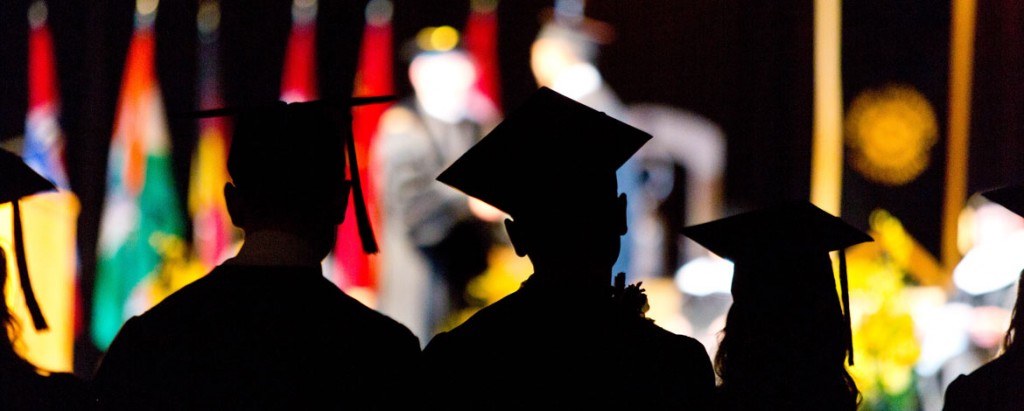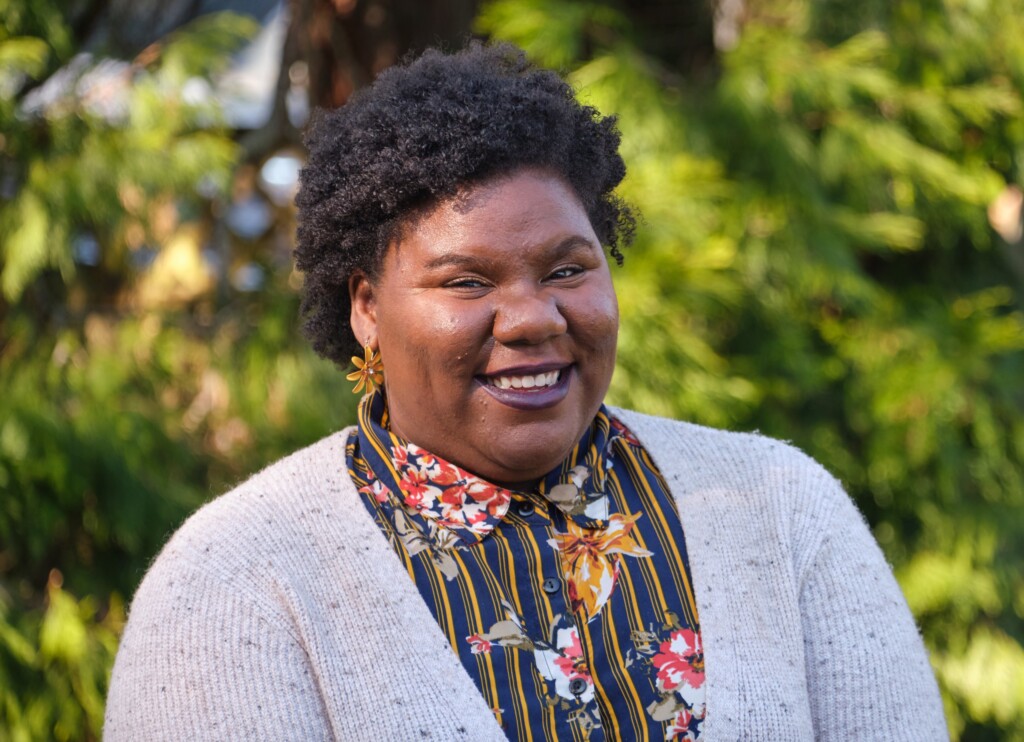Page 65 • (1,065 results in 0.048 seconds)
-

TACOMA, WASH. (May 15, 2017)- Classes are over, tests are on the horizon and therapy dogs are waiting in the wings. It’s the end of spring semester, and for several hundred Lutes that means life after college beckons. Pacific Lutheran University students are fast approaching…
understand what’s going on and adjust my life accordingly.” However, Hofrenning’s post-graduate plans span further than mere governance. Hofrenning aims to combine his degree with his religion and Hispanic studies minors to contribute to progressive peacebuilding in Colombia. “(I want to look) at what opportunities come out of the political landscape down there right now,” Hofrenning said, “and to use what I learned from Hispanic studies to insert myself and start working in Hispanic politics
-

PLU President Allan Belton is a morning person. He’s frequently among the first employees to arrive at the Hauge Administration Building, but not before his morning cup of joe. His favorite coffee stand is on South Tacoma Way, the seven-mile arterial that is the economic…
stationed nearby at Joint Base Lewis-McChord — don’t have a city council or city liaisons to contact for support. Studies of the economy, health and wellness of unincorporated communities have shown clear results. The World Health Organization (WHO) concluded that “lack of municipal status is a structural determinant of health responsible for social conditions which generate cumulative health risks for residents.” As an unincorporated community, Parkland receives basic services from Pierce County
-
Tuesday, May 19th, 2020 Welcome! We, Rose McKenney and Adela Ramos, are excited to share with you the work of the 2020 class of Environmental Studies students.
best possible form and always in before the deadline. I also would like to thank my family for supporting me and making this opportunity possible.Climate Changing Attitudes: Environmental Disaster and the effect on Policy, Philosophy, and Political Opinion.This study is concentrated around climate change and environmental disaster in the United States and the effects it is having on voters. First, the paper focuses on the history of climate change during politically charged times and how both
-
Fr. Charles R. Gallagher, S.J., of the history department at Boston College will speak about his explorations of a heretofore unknown set of intelligence relationships involving Nazi, British, and
1943, with the help of the Catholic cleric Simon Gallay, the family, then numbering parents and six children, fled to Switzerland, where they stayed until the war’s end — then returned to Belgium. In 1950, the family moved to the USA, and settled in Brooklyn. In 1962, Mordecai Paldiel made Aliyah and studied at the Hebrew University, Jerusalem, where he earned a BA degree in Economics and Political Science. He then furthered his studies at Temple University, Philadelphia, where he earned an MA and
-

TACOMA, WASH. (August 24, 2015)- This week, PLU introduced “Open to Interpretation,” a new podcast devoted to exploring the meanings and implications of words commonly used in the news, on social media and on college campuses. Hosted by Associate Professor of Communication Amy Young, each…
written quite a lot on intellectual engagement, public intellectuals and activism—I think there is a sense that to do political or social engagement is somehow antithetical to the academic project or disposition. A sense that we are to remain detached (thanks, Plato!), that we’re supposed to recuse ourselves from public life because we’re devoted to the life of the mind. But, I argue that is dangerous and myopic—university faculty have a unique platform by virtue of our position and perception, and we
-

TACOMA, WASH. (Sept. 27, 2017)- Maria Chavez leads with her own experience when she addresses academic opportunity and achievement. Specifically, she empathizes with students who come from marginalized populations. Chavez, chair and associate professor of politics and government, identifies as Latina. She’s a native Spanish…
professions across the board. “Latinos are underrepresented in powerful segments of American society,” she said. “We must ask what the implications of this continued political and professional underrepresentation is on our society and our democratic institutions. Beyond issues of representation, this research is important for our civic health.”Politics and Government at PLULearn more about the department and the majors within itShe said that fact clearly illustrates the need to address the achievement
-

TACOMA, WASH. (March 23, 2018) — After living in the U.S. for seven years, Sunny Huang ’18 took the oath of allegiance Jan. 29 against a backdrop of American flags. She completed the yearlong naturalization process to become a U.S. citizen. The ceremony came months…
consequence of losing her Chinese citizenship. No matter how she looked at it, she felt she was forfeiting a part of her identity. “It’s not that I can’t go back to China ever again,” Huang said. “It’s just – I’m feeling distant now, like an outsider, because my nationality isn’t Chinese but my – everything else is.” Still, Huang says time and reflection has helped change her perspective. Now, she is focusing on the opportunities that lie ahead. The current tumultuous political climate has galvanized more
-

TACOMA, WASH. (March. 10, 2020) — Nicole Jordan ’15 is back on campus, this time using the degree she earned in social work to help educate and lead others in her new position as coordinator for PLU’s Center for Gender Equity. The center began as…
senator in Olympia, passion for political science and future career COMMENTS*Note: All comments are moderated If the comments don't appear for you, you might have ad blocker enabled or are currently browsing in a "private" window. LATEST POSTS Caitlyn Babcock ’25 wins first place in 2024 Angela Meade Vocal Competition November 7, 2024 PLU professors Ann Auman and Bridget Haden share teaching and learning experiences in China November 4, 2024 Lutes celebrate another impactful Bjug Day of Giving: a PLU
-
The School of Nursing's conceptual frameworks, undergraduate and graduate, are guided by the mission of PLU and the mission of the School of Nursing.
Environment is local and global and includes, but is not limited to, physical, psychological, cultural, financial, regulatory, technological, and political elements. Environment directly affects a person’s health, health-related behaviors, and overall well-being. The nurse’s concept of environment provides the structure for understanding the impact of multidimensional external elements on person. To facilitate an environment that is conducive to optimum health, the nurse must understand how individual and
-

Travis McDaneld ’23 is entering his fourth year at PLU as an economics major, minoring in data science. When he enrolled at PLU, he had every intention of majoring in business, although he admits to not having any idea about what he wanted to do…
, are really important. I’ve always believed in an intrinsic value in intellectualism and in challenging the world around you, not taking things for granted. PLU acknowledges that and encourages it, which can be hard to find in contemporary schooling. I really love that about PLU. Read Previous Summer Internships: Political Science Read Next New Student Orientation & Move in day LATEST POSTS PLU Scores 4.5 out of 5 on Campus Pride Index: What does that mean? November 21, 2024 YouTube Short: A quick
Do you have any feedback for us? If so, feel free to use our Feedback Form.


